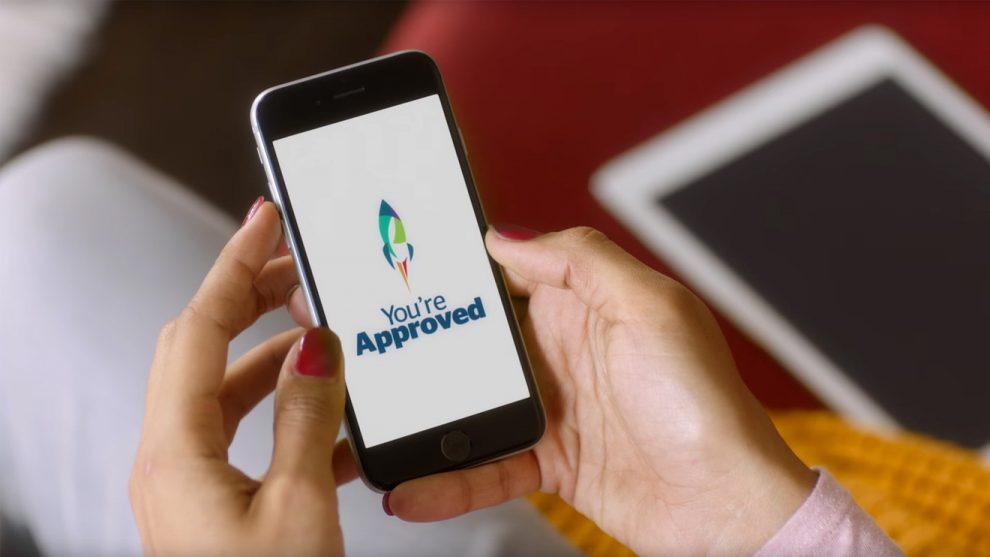
Rocket Companies, the parent company of mortgage lending giant Quicken Loans, has filed for its initial public offering.
The company plans to trade on the New York Stock Exchange under the ticker “RKT.” The terms of the offering, including the price range and number of shares, have not yet been announced. Six banks are set to underwrite the IPO, led by Goldman Sachs GS, +1.45%.
Proceeds from the IPO will be used to purchase businesses and Class D stock from Rocket Cos.’ existing holding company, Rock Holdings Inc., which is owned by the company’s founder and chairman Dan Gilbert.
Rocket’s IPO comes as the broader IPO market has kicked into high gear after a long dry spell as a result of the coronavirus pandemic. Recent offerings include Warner Music Group Corp. WMG, +1.14% , 1.06%, which returned to public markets in June after nine years of being private, and online insurer Lemonade LMND, -13.04% , which debuted last week.
Rocket is also going public as the mortgage industry has seen millions of homeowners request forbearance on their monthly loan payments amid record levels of unemployment.
The company’s leadership team mainly comprises executives from Quicken Loans. Jay Farner, who has served as CEO of Quicken Loans since 2017, will be the company’s CEO. Farner has been with Quicken for over two decades, and previously served as the lender’s president and chief marketing officer. Julie Booth, the company’s chief financial officer and treasurer, has been in this role at Quicken Loans since 2005.
The lender was originally founded in 1985 as Rock Financial. In 1998, Gilbert took Rock Financial public, but eight years later it was purchased by Intuit. At that time, the company’s name was switched to Quicken Loans. Then in 2002, Gilbert and other investors purchased Quicken Loans back from Intuit INTU, +0.79%.
Throughout its history, Quicken has been at the forefront of the digitization of the mortgage industry. In 2016, Quicken Loans debuted the Rocket Mortgage brand with the claim that the company’s digital mortgage process could connect consumers with a mortgage in as little as eight minutes.
Rocket Mortgage has increased its market share to 9.2% in the first quarter of 2020 from 1.3% in 2009. Rocket Mortgage’s primarily digital mortgage lending process has proven popular with millennials in particular, who represent the largest generation of home buyers in the country. Among the consumers who applied for a home loan using the company’s online platform or app, 75% were first-time homeowners or millennials, the company said.
In 2018, Quicken Loans became the largest mortgage lender by volume in the U.S. by supplanting Wells Fargo WFC, +0.36%, in a demonstration of the growing dominance of non-bank lenders in the mortgage space.
Rocket Cos. also owns a range of companies across the financial services and real-estate ecosystems, include real-estate listing websites Rocket Homes, title insurance company Amrock and financial product search engine LowerMyBills.
Those other businesses could comprise a broader part of the company’s strategy moving forward. Earlier this year, the company’s CEO, Jay Farner, described to MarketWatch how Quicken Loans was aiming to develop new products and services designed to give homeowners a more comprehensive view into their assets.
“Your largest investment is your home, so why not more visibility into how that asset’s forming and more suggestions to improve that?” Farner said. “You’re going to see people bring more value to consumers that way. That’s what we’re focused on.”
According to its IPO prospectus, the company has seen its net revenue double over the past year. The company brought in nearly $1.4 billion in the first three months of 2020, as compared with $632 million during the same period last year. The company’s net income in the first quarter of 2020 was $97.7 million, after a net loss of $299 million a year ago.
Here are five things to know about Rocket ahead of its IPO:
The company’s profits depend largely on the direction of interest rates
Most of Rocket’s mortgage originations are refinances. Of the $39 billion in total originations in 2019, only 27% was for consumers buying a home. Consequently, refinancing represents a bigger part of Rocket’s business than the broader mortgage industry.
The drop in interest rates to historic lows in recent months has helped boost the company’s profits this year, as Rocket processed record numbers of loans. “If interest rates rise and the market shifts to purchase originations, our market share could be adversely affected if we are unable to increase our share of purchase originations,” the company said in the prospectus. A sustained low-rate environment could also prompt a decline in refinancing demand.
Shifting toward purchase loans isn’t foolproof either. As Rocket warns, higher interest rates make buying a home more expensive, which could also cause a drop in demand for those loans.
Fluctuations in rates also have an impact on the company’s servicing business and the value of its mortgage servicing rights. “Historically, the value of MSRs has increased when interest rates rise as higher interest rates lead to decreased prepayment rates, and has decreased when interest rates decline as lower interest rates lead to increased prepayment rates,” the company said. “As a result, decreases in interest rates could have a detrimental effect on our business.”
Read more:Mortgage rates keep falling to record lows — so is now a good time to refinance?
People who purchase shares in the public offering won’t have much say in the company
Rocket’s current parent, Rock Holdings Inc., and its owner Gilbert, will retain aggregate voting power equal to 79% in the public company thanks to its ownership of Class D shares, which are afforded 10 votes per share.
“Accordingly, RHI will control our business policies and affairs and can control any action requiring the general approval of our stockholders,” the company said. That includes the election of board members, the adoption of bylaws and the approval of any merger or sale of substantially all of our assets. Rock Holdings will maintain this control as long as it owns at least 10% of Rocket’s issued and outstanding common stock.
The “Quicken Loans” name has a complicated backstory
In recent years, the company has embraced the “Rocket Mortgage” brand in favor of Quicken Loans. As the company’s filing with the Securities and Exchange Commission notes, it does not own the rights to the Quicken Loans trademark. It licenses the name and trademark from Intuit.
Intuit owned a separate entity, called QuickenMortgage, when it purchased Rock Financial in 1999, which it combined with Rock Financial’s mortgage business to form Quicken Loans. Even after Gilbert repurchased the company, Intuit remained the owner of the brand.
Rocket has entered into an agreement to assume full ownership of the brand in 2022 “in exchange for certain agreements.” Until that deal closes, Intuit reserves the right to terminate the licensing agreement if Quicken Loans breaches its obligations or if there are “certain instances where wrongdoing or alleged wrongdoing by Quicken Loans or any controlling person could have a material adverse effect on Intuit,” the company said.
Investors shouldn’t expect to receive a dividend
Rocket currently plans to retain all future earnings and doesn’t anticipate paying cash dividends “for the foreseeable future” following the IPO. That means shareholders will have to rely on stock gains for returns.
Any future plans to offer a dividend could be further complicated by the company’s structure. “As a holding company, our ability to pay dividends depends on our receipt of cash dividends from our subsidiaries, which may further restrict our ability to pay dividends as a result of the laws of their respective jurisdictions of organization,” the company noted.
The company’s fortunes could be hampered by the privatization of Fannie Mae and Freddie Mac
The vast majority of the mortgages Rocket originates are sold into the secondary market, and its loans are securitized by Fannie Mae FNMA, , Freddie Mac FMCC, and Ginnie Mae.
The Trump administration has prioritized the reform and recapitalization of Fannie Mae and Freddie Mac, which have remained in conservatorship since the 2008 financial crisis. Lawmakers in Congress have also advanced their own proposals regarding Fannie and Freddie’s future.
Whatever happens with Fannie and Freddie could affect Rocket’s business. It could lead to higher fees charged by Fannie and Freddie or lower prices for the sale of the company’s loans, according to the regulatory filing.
The Renaissance IPO ETF IPO, +2.90% has gained 41% in the year-to-date, while the S&P SPX, +0.78% as fallen 2.4%.











Add Comment